No products in the cart.
Schneider LC1E2510M5 | Contactor,EasyPact TVS,3P(3NO),AC-3,<=440V,25A,220V AC coil,50Hz,1NO auxiliary contact
1,138 EGP2,107 EGP (-46%)
Schneider LC1E2510M5 | Contactor,EasyPact TVS,3P(3NO),AC-3,<=440V,25A,220V AC coil,50Hz,1NO auxiliary contact
Schneider LC1E2510M5: Your Comprehensive Guide
Introduction to Schneider LC1E2510M5
Schneider LC1E2510M5 is a robust and reliable contactor designed for various industrial applications. It belongs to Schneider Electric’s LC1E series, renowned for its performance and durability in controlling electrical circuits.
Features and Specifications
Voltage Rating
The Schneider LC1E2510M5 contactor operates effectively within a voltage range of 24 to 48 volts.
Current Rating
With a current rating of 25 amps, this contactor can efficiently handle moderate to heavy electrical loads.
Coil Voltage
The coil voltage of the LC1E2510M5 is optimized for consistent and stable performance, ensuring reliable operation in diverse environments.
Contact Configuration
Featuring a 3-pole contact configuration, this contactor offers enhanced connectivity and versatility in electrical circuits.
Number of Poles
The LC1E2510M5 contactor is equipped with three poles, facilitating seamless integration into three-phase electrical systems.
Applications
Schneider LC1E2510M5 finds wide-ranging applications across industries, including:
- Manufacturing plants
- Commercial buildings
- HVAC systems
- Water treatment facilities
- Mining operations
Advantages of Schneider LC1E2510M5
- Robust construction ensures durability and longevity.
- Precise engineering guarantees reliable performance under varying conditions.
- Easy installation and compatibility with standard electrical systems streamline integration processes.
- Enhanced safety features protect against electrical faults and overloads.
- Compact design saves space and allows for flexible installation options.
Installation Guide
Installing the Schneider LC1E2510M5 contactor is straightforward and can be accomplished using standard electrical wiring practices. Here’s a brief guide:
- Ensure that the power supply to the circuit is switched off.
- Select an appropriate location for mounting the contactor, considering accessibility and ventilation requirements.
- Connect the control wires to the designated terminals on the contactor, following the manufacturer’s instructions.
- Securely fasten the contactor to the mounting surface using suitable hardware.
- Double-check all connections to ensure proper wiring and alignment.
- Restore power to the circuit and test the contactor’s operation.
Maintenance Tips
To ensure optimal performance and longevity of the Schneider LC1E2510M5 contactor, follow these maintenance tips:
- Regularly inspect for signs of wear or damage, such as overheating or corrosion.
- Keep the contactor and its surroundings clean and free from debris.
- Test the contactor periodically to verify its functionality.
- Replace any worn-out components or damaged parts promptly.
- Follow the manufacturer’s recommendations for maintenance intervals and procedures.
Troubleshooting
In the event of operational issues or malfunctions, refer to the troubleshooting guide provided by Schneider Electric. Common troubleshooting steps may include:
- Checking for loose connections or faulty wiring
- Inspecting the contactor for signs of damage or wear
- Testing the coil voltage and continuity of the contactor
- Consulting technical support or contacting a certified electrician for assistance
Comparisons with Similar Products
When comparing the Schneider LC1E2510M5 with similar products in the market, consider factors such as:
- Price
- Performance specifications
- Brand reputation
- Warranty coverage
- Additional features or functionalities
Customer Reviews
Customers who have used the Schneider LC1E2510M5 contactor have praised its reliability, durability, and ease of installation. Many users have reported significant improvements in their electrical systems’ performance after incorporating this contactor.
Conclusion
Schneider LC1E2510M5 stands out as a dependable solution for controlling electrical circuits in diverse industrial applications. With its robust construction, reliable performance, and ease of installation, it offers significant advantages to users seeking efficient and safe electrical control solutions.
FAQs
- Is the Schneider LC1E2510M5 contactor suitable for outdoor applications?
Yes, the Schneider LC1E2510M5 contactor is designed to withstand harsh environmental conditions, making it suitable for both indoor and outdoor use.
- What is the warranty coverage for the Schneider LC1E2510M5 contactor?
Schneider Electric offers a standard warranty on the LC1E2510M5 contactor, typically covering defects in materials and workmanship for a specified period. Please refer to the product documentation for warranty details.
- Can the Schneider LC1E2510M5 contactor be used in three-phase electrical systems?
Yes, the Schneider LC1E2510M5 contactor is specifically designed for integration into three-phase electrical systems, providing reliable control and connectivity.
- What safety features does the Schneider LC1E2510M5 contactor offer?
The Schneider LC1E2510M5 contactor is equipped with built-in safety features, including overload protection and arc suppression, to ensure safe operation and prevent electrical hazards.
Is professional installation required for the Schneider LC1E2510M5 contactor?
While the Schneider LC1E2510M5 contactor can be installed by individuals with basic electrical knowledge, professional installation by a certified electrician is recommended to ensure proper wiring and compliance with safety standards.
Additional information
| brands | Schneider Electric |
|---|---|
| Range | EasyPact |
| Product or component type | Contactor |
| Device short name | LC1E |
| contactor application | Motor control Resistive load |
| [Ie] rated operational current | 25 A (at <55 °C) at <= 440 V AC AC-3 for power circuit 36 A (at <55 °C) at <= 440 V AC AC-1 for power circuit |
| Inrush power in VA | 95 VA 50 Hz cos phi 0.75 (at 20 °C) 95 VA 60 Hz cos phi 0.75 (at 20 °C) |
| Auxiliary contact composition | |
| Associated fuse rating | 10 A gG at <= 690 V coordination type 1 for control circuit conforming to IEC 60947-5-1 40 A gG at <= 690 V coordination type 1 for power circuit |
| Tightening torque | Control circuit: 1.2 N.m Power circuit: 1.5 N.m |
| Mechanical durability | 10000000 cycles |
| Mounting support | Plate DIN rail |
| Pole contact composition | 3 NO |
| Minimum switching current | 5 mA for control circuit |
| Non-overlap time | 1.5 ms on energisation guaranteed between NC and NO contact 1.5 ms on de-energisation guaranteed between NC and NO contact |
| Insulation resistance | > 10 MOhm for control circuit |
| Connections - terminals | Control circuit: screw clamp terminals 1 1…4 mm² – cable stiffness: flexible without cable end Control circuit: screw clamp terminals 2 1…4 mm² – cable stiffness: flexible without cable end Con |
| Poles description | 3P |
| minimum switching voltage | 17 V for control circuit |
| Utilisation category | AC-1 AC-3 |
| [Ue] rated operational voltage | Power circuit: <= 690 V AC 50/60 Hz |
| Control circuit type | AC at 50 Hz |
| [Ui] rated insulation voltage | 690 V conforming to IEC 60947-4-1 |
| Maximum operating rate | 1800 cyc/h 60 °C |
| Motor power kW | 5.5 kW at 220…230 V AC 50/60 Hz 11 kW at 380…400 V 11 kW at 415 V 11 kW at 440 V 15 kW at 500 V 15 kW at 660…690 V |
| Rated breaking capacity | 200 A at 440 V for power circuit conforming to IEC 60947 |
| Average impedance | 2.5 mOhm – Ith 36 A 50 Hz for power circuit |
| Power dissipation per pole | 1.6 W AC-3 3.2 W AC-1 |
| Electrical durability | 350000 cycles AC-1 300000 cycles AC-3 |
| Heat dissipation | 2…3 W for control circuit |
| Operating time | 12…22 ms on closing 4…19 ms on opening |
| Net weight | 0.36 kg |
| Product certifications | EAC CE |
| Overvoltage category | III |
| Fire resistance | 850 °C conforming to IEC 60695-2-1 |

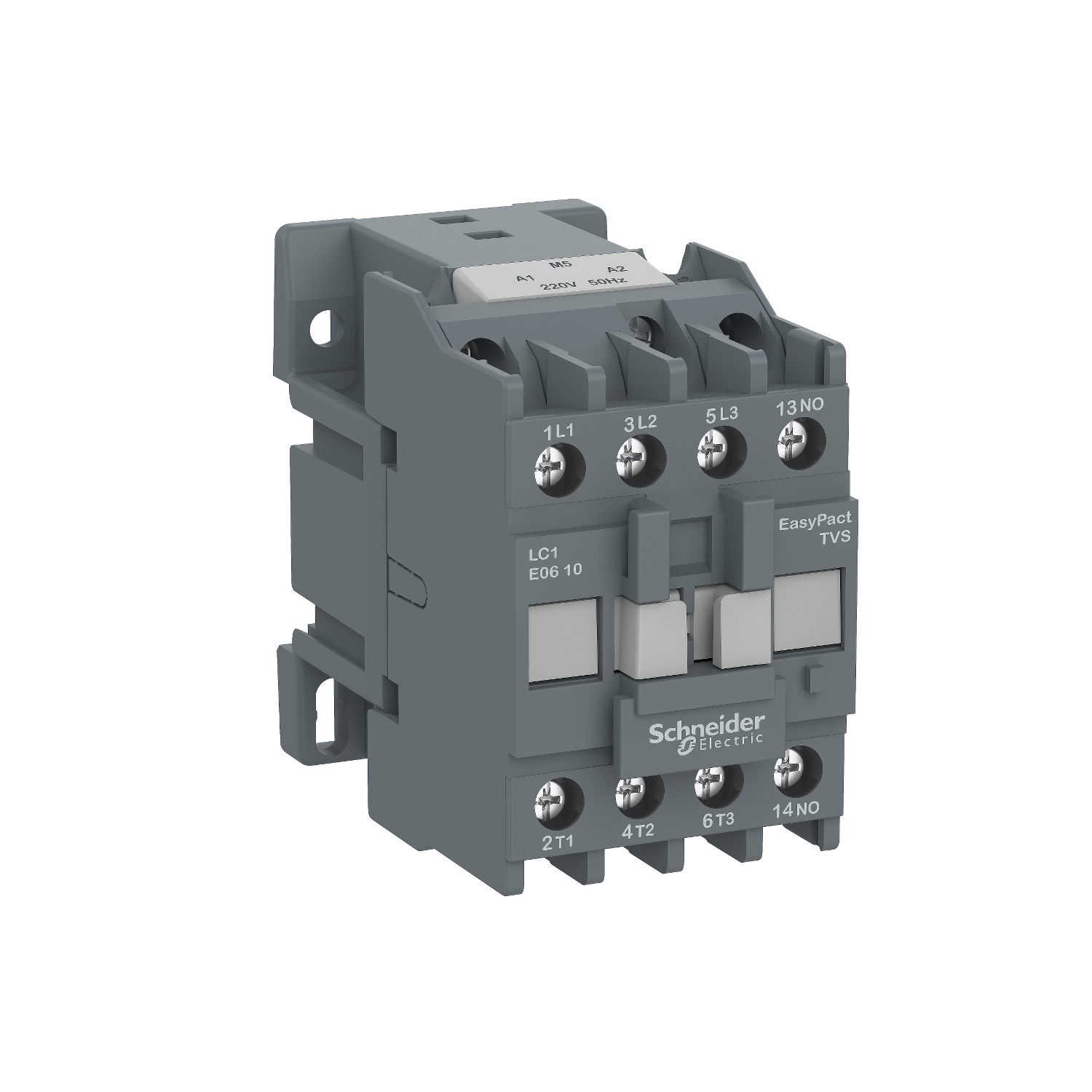
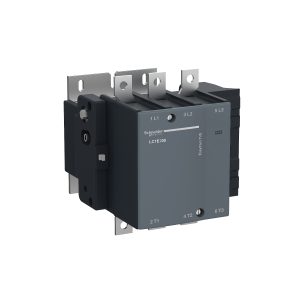

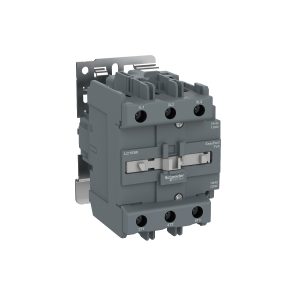
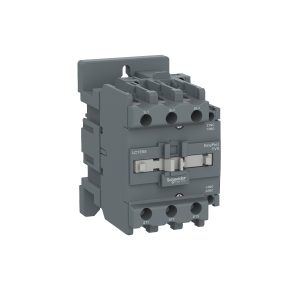

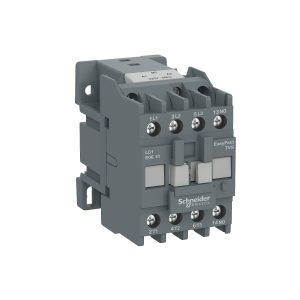
Reviews
There are no reviews yet.